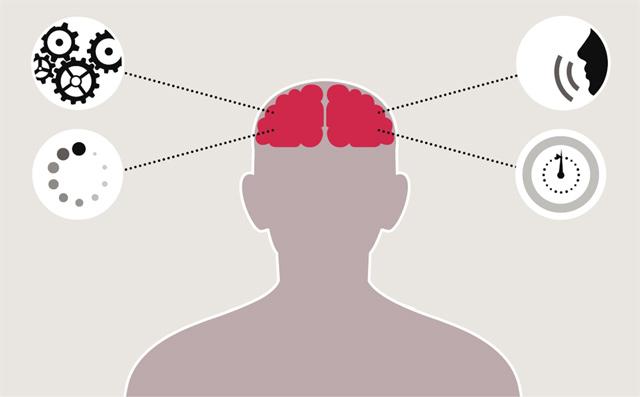You are here
Long-term obesity tied to higher dementia risk in healthy older adults
By Reuters - Mar 20,2019 - Last updated at Mar 20,2019

Photo courtesy of medicalxpress.com
Healthy older adults, who have been obese for years, may be at higher risk of developing dementia than their peers who are not overweight, research from the UK suggests.
The study team followed two groups of dementia-free adults aged 65 to 74 years for up to 15 years. One group, considered healthy, included 257,523 non-smokers who did not have cancer, heart failure or multiple chronic health problems; another group of 161,927 adults, deemed unhealthy, did smoke or have serious chronic medical issues.
Over the first decade of the study, healthy people who were obese or overweight were less likely to develop dementia than healthy people at a normal weight, the study found. But after that, obesity was associated with a 17 per cent higher risk of dementia and being heavier no longer appeared to be protective.
“When we looked long-term, being obese was definitely associated with increased risks of dementia,” said senior study author David Melzer of the University of Exeter in the UK.
People with obesity often have other health problems like diabetes and high blood pressure that can independently increase the risk of dementia, previous research has found. But results regarding the connection between obesity and dementia have been mixed, with some previous studies suggesting that this excess weight might actually be protective.
In the current study, 9,774 people in the “healthy” group were diagnosed with dementia. Slightly more than half of the dementia patients had lost at least 2.5 kilogrammes during the decade prior to their diagnosis.
Weight loss prior to the dementia diagnosis might mask the connection between obesity and cognitive decline, Melzer said by e-mail.
Alzheimer’s disease, the main cause of dementia, can develop slowly over up to 20 years before people get diagnosed, Melzer noted.
“The same is true of damage to the arteries in the brain, which also contributes to dementia,” Melzer said. “This slow development of dementia makes it difficult to separate real risk factors from the effects of the disease.”
Interestingly, obesity was associated with a lower short-term and long-term risk of dementia for the unhealthy group in the study. A total of 6,070 individuals in the unhealthy group developed dementia.
“In general, losing weight, being more physically active, and getting blood pressures and cholesterol levels under control should make a big difference for dementia risk, plus risks of diabetes and heart disease,” Melzer said.
The study was not designed to prove whether or how obesity might directly cause dementia in later years. Another limitation is that researchers lacked data to examine the connection between obesity and specific forms of dementia like Alzheimer’s disease, the authors note in Age and Ageing.
In a separate study in the same journal, researchers led by Alexander Allen of the London School of Hygiene and Tropical Medicine also examined the connection between overweight and dementia, and also cast doubt on the idea that obesity is protective.
The researchers analysed the link between excess belly fat in middle age and the risk of death from dementia over the next 40 years in about 19,000 male civil servants participating in a long-term health study.
They found that weight loss over 30 years, starting in middle age, was associated with an increased risk of dementia in old age. Having excess fat in old age, however, was tied to a lower risk of dementia.
While that may appear to suggest a protective effect of extra weight, in fact, the strongest connection, between weight loss over time and an eventual dementia diagnosis, points to the symptoms of developing dementia contributing to the weight loss, Allen and colleagues write.
“These effects may reflect changes in appetite or other aspects of behaviour that result in reduced energy intake,” they note. “Thus, claims from previous studies that underweight increases the risk of dementia may be an artefact of the effects of reverse causality.”
Nearly 1,000 die in Madagascar’s measles outbreak
Allen didn’t respond to requests for comment.
“Regular weight checks could provide an easily measured marker for risk of frailty and subsequent detection of dementia,” Allen and colleagues write. “Whether this could allow early interventions to improve dementia outcomes could also merit further investigation.”
Related Articles
People who are obese in middle age run a lower risk of developing dementia later, said a large and long-term study recently whose findings challenge the prevailing wisdom.
TAMPA — Aggressive treatment to lower blood pressure in older people has been shown to cut the risk of developing mild cognitive impairment,
People who have risk factors for heart disease like diabetes, high blood pressure and obesity may also be more likely to develop structural













